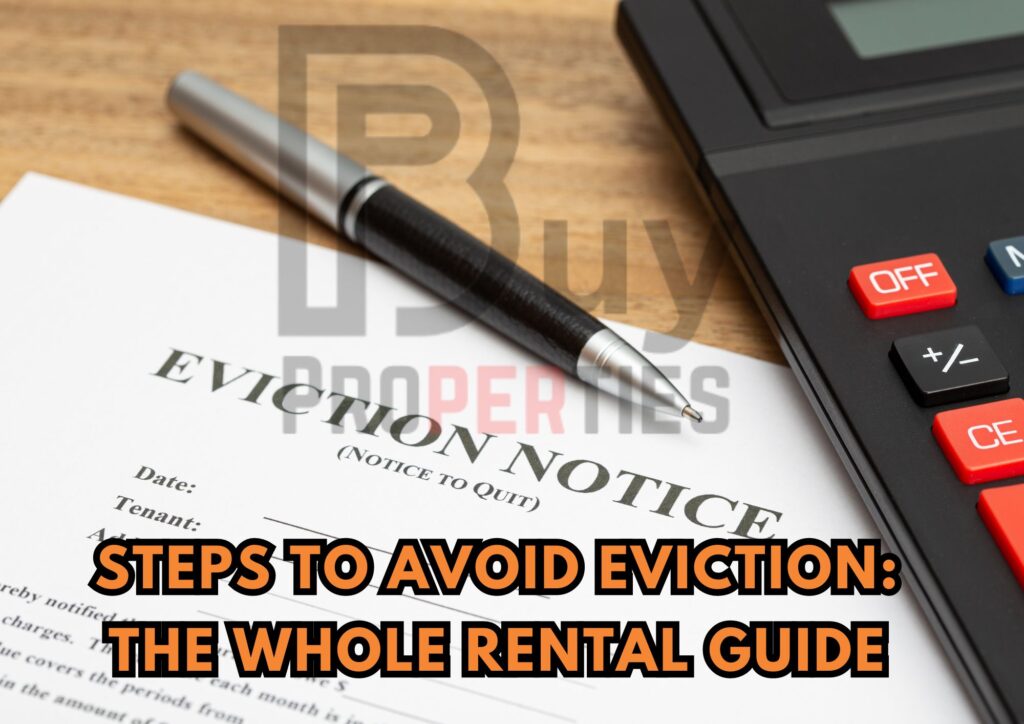
What Is Eviction?
The legal procedure through which a landlord can evict a tenant from a rental property is known as eviction. When a tenant fails to pay rent, when they violate the terms of the rental agreement, or in other legally permissible circumstances, they may be removed from their property.
In the US, evictions are under the jurisdiction of certain states and local governments. Tenants must receive notice from their landlords that they are about to be evicted, along with a notice detailing the reason for the eviction and the number of days left before eviction procedures start.
IMPORTANT NOTES
A tenant who has been ordered by a court to leave their home is subject to an eviction.
A landlord may decide to evict a tenant for nonpayment of rent, damages, illegal activity, violating the terms of a lease, or if the landlord wishes to take possession of the property.
The eviction process normally begins with a notice from the landlord that asks the tenant to remedy certain conditions.
If the tenant doesn’t offer a remedy, the landlord may start the eviction process in court.
When a case comes before a judge, they consider the evidence, hear testimony, and then determine whether to grant or reject a landlord’s request for eviction.
The Process of Eviction
State, county, and local laws governing landlord/tenant apply to rental properties and all parties involved in lease agreements. Tenants cannot be evicted by landlords without justification. For a variety of reasons, such as failure to pay rent, damage, unlawful activity, breaking a lease, or the landlord’s desire to reclaim the property, there may be an excuse.
According to studies conducted by Princeton University’s Eviction Lab, unpaid rent is the most frequent reason for eviction.
In certain states, landlords have the right to evict tenants at any time, even if they haven’t broken any laws. This kind of lease has no end date. It is not constrained by a contract or lease. However, in certain states these renters might be protected, particularly if the courts find that the action was retaliatory or discriminatory.
The Legal Process of Eviction
State and local laws governing evictions differ, but the procedure is generally the same. Tenants receive an eviction notice from their landlord, which gives them a set amount of time to pay the rent, make good on any damages, or address any other issues that caused the eviction.
The landlord may then bring an eviction lawsuit against the renter if that period of time passes without a resolution. In addition to the eviction, a complainant/landlord may also seek monetary compensation for unpaid rent and utility bills, property damage, late fees, and court costs.
District courts, housing courts, and small claims courts are typically where cases are heard. Tenants and landlords are both expected to attend and are welcome to bring legal counsel. Courts require proof of misconduct, such as images, texts, emails, and other documents, as well as witness statements that could bolster each side’s position.
Before deciding whether to grant or reject a landlord’s request for eviction, a judge considers the evidence and hears testimony. In addition, the judge has the authority to determine whether and how much monetary damages should be awarded.
If the landlord, or the landlord’s attorney, shows up in court and the renter doesn’t show up, the landlord will usually get an automatic eviction judgment.
Removals Amid COVID-19
In reaction to the COVID-19 pandemic, Congress passed the Coronavirus Aid, Relief, and Economic Security (CARES) Act, which temporarily outlawed evictions. 2020 saw a 120-day ban on evictions for those receiving federal housing assistance or residing in homes with mortgages backed by the federal government. These consist of loans that have been funded by the Federal Housing Administration (FHA), Freddie Mac, or Fannie Mae.
The initial prohibition forbade landlords from bringing fresh eviction lawsuits for unpaid rent. The last day was July 24, 2020. Based on an analysis by the Urban Institute, 28% of the 43.8 million renter households in the country were affected by the moratorium.
Then, for reasons of public health, the Centers for Disease Control and Prevention (CDC) outlawed the eviction of numerous tenants. This order was first issued on September 4, 2020, and it has since been repeatedly extended.
When the Delta variant started to spread quickly, the CDC then issued a new order that went into effect on August 3, 2021. Evictions in counties with significant or high levels of community spread were temporarily prohibited by this.
It was supposed to expire on October 3, 2021, but on August 26, 2021, the Supreme Court invalidated it.
Some states and localities may still have some bans and other protections in place as of 2023.
The website of the National Low Income Housing Coalition offers a searchable list of all the programs that are currently offered to renters in need of assistance.
Benefits and Drawbacks of Eviction
Regarding Landlords
Landlords can get rid of noisy tenants and those who don’t pay their rent at all or on time by using evictions. Although going through the eviction process can be expensive, landlords can gain by doing so in order to safeguard their property’s interests. By evicting an unsatisfactory tenant, a landlord can make their property available to better, more responsible tenants.
Regarding Tenants
Tenants may experience long-term consequences from an eviction. If they apply for a new home, a rental application will probably inquire about prior evictions. However, a prior eviction might not totally bar someone from signing a new lease.
It’s possible that some landlords are just curious about the details of the eviction. If a previous landlord chose to legally evict the tenants in order to sell the apartment as a condominium, it is unlikely that this would have a negative impact on the landlord’s perception of a potential tenant.
A Notice to Cease: What Is It?
In many states, a landlord must serve a tenant with a notice to cease before they can file for eviction. It’s also known as a notice to quit on occasion. Tenant may be given a grace period to address the issue that could lead to eviction, depending on the reason for the potential eviction.
When Can a Tenant End a Lease?
State laws pertaining to landlords and tenants can vary, but there are some commonalities. One of the recognized grounds for a tenant to violate a lease in Texas is a clause allowing service members to legally leave early in the event of a restation or deployment. Other acknowledged causes include problems with domestic violence and a landlord’s neglect of specific maintenance. In Texas, these are known as “statutory rights,” and they don’t need a court case to be pursued, though state laws may differ in this regard.
Does the Neighborhood Get Affected by an Eviction?
Empirical studies indicate that elevated rates of eviction have adverse impacts on the broader community. Families in high-eviction neighborhoods become unstable, which increases the risk of crime.
Cities with high eviction rates suffer severe financial consequences as well. They may have to pay more for social services and shelters, lose out on unpaid utility bills, and frequently lose out on property taxes.
Eviction moratoriums: When Do They End?
The federal government and the Centers for Disease Control have prohibited evictions until October 3 for renters who are experiencing financial hardship as a result of the pandemic. Moratoriums have been imposed by more than 40 states and numerous local governments; the majority of them expire in the fall.
The CDC ruling was contested by landlords and realtors, and the legality of the decision has been disputed by the courts. The moratorium was overturned by a federal judge in May, but after some legal wrangling, it is still in place.
The day when landlords will not be prohibited from evicting tenants who are behind on their rent is not yet known, but it will come.
To What Extent is Rent Overdue?
The National Association of Realtors estimates that unpaid rent outstanding among Americans in 2020 totaled approximately $70 billion. Additional estimates for the rental industry range from $8.4 billion to $52.6 billion, but analysts claim it is difficult to find reliable data in this area.
Regardless of the amount, that $45.5 billion would pay for most past-due rent. How then do you obtain some?
Actions That Might Save You From Being Evicted
- Request Federal Funds
The COVID-19 relief bills’ stimulus checks were automatically deposited into bank accounts. With rental assistance, that isn’t the case, and there isn’t a single place to get the money.
They are being distributed to regional authorities and institutions, some of which may only be virtual.
Oh no.
The U.S. Treasury has a list of organizations disbursing funds if you’re not sure where to apply. The HUD counseling program’s number is 800-569-4287.
To be eligible for assistance, you must fulfill a number of requirements, such as making less than $99,000 ($198,000 if filing jointly) per year in income.
- Proactively Communicate with Your Landlord
Evictions cost money, and many landlords are as financially stressed as their tenants. If you can work out a payment schedule, they may be inclined to allow you to stay instead of incurring court fees.
Don’t wait for the rent enchanted by the government to appear on your pillow. Inform your landlord that you intend to file for financial assistance, which will pay your current rent, past due rent, and any additional late fees you may have racked up.
If you reach a consensus, put it in writing. Additionally, make sure both parties have signed and dated it.
- Hire a Lawyer
Hiring legal counsel may encourage your landlord to engage in negotiations. Furthermore, the $1.9 trillion American Rescue Plan Act, which was passed in March, included free legal counseling.
You can get legal assistance from a database maintained by the Legal Services Corporation. Call 202-295-1500 or go to their website.
A list of legal organizations that provide free counseling is available from the relief organization Just Shelter.
- Engage in negotiations
It’s likely that you paid a security deposit when you rented your home. Inform your landlord that they are free to keep it. Offer to assist them with office work or property maintenance. Ask them to reduce your rent or waive late charges. There’s no guarantee you’ll get any concessions, but you never know until you ask.
- Recognize Your Choices
The process of an eviction is not easy. Tenants have the right to appeal, the courts must approve or reject evictions, tenants must receive written notice, and Writs of Possession must be posted.
It might take weeks or months before your eviction mess becomes apparent due to the high volume of upcoming evictions. In essence, you can live anywhere you want until a sheriff gives you the order to leave.
That could buy you enough time for things to get better financially or for a government program to start.
Eventually, assistance ought to knock on your door. All you need to do is hold on long enough to respond.
Final Note
Due to a variety of circumstances, life can throw you into a situation where you are unable to honor your lease in its entirety. Certain lease violations are voluntary, like damaging the property or doing illegal activity; however, other violations might not be within your control, like losing your job and not being able to pay your rent.
If you find yourself in a scenario like this, get help from your county government. Every state has some policies in place to assist tenants in case of unforeseen events, like the COVID-19 pandemic.

